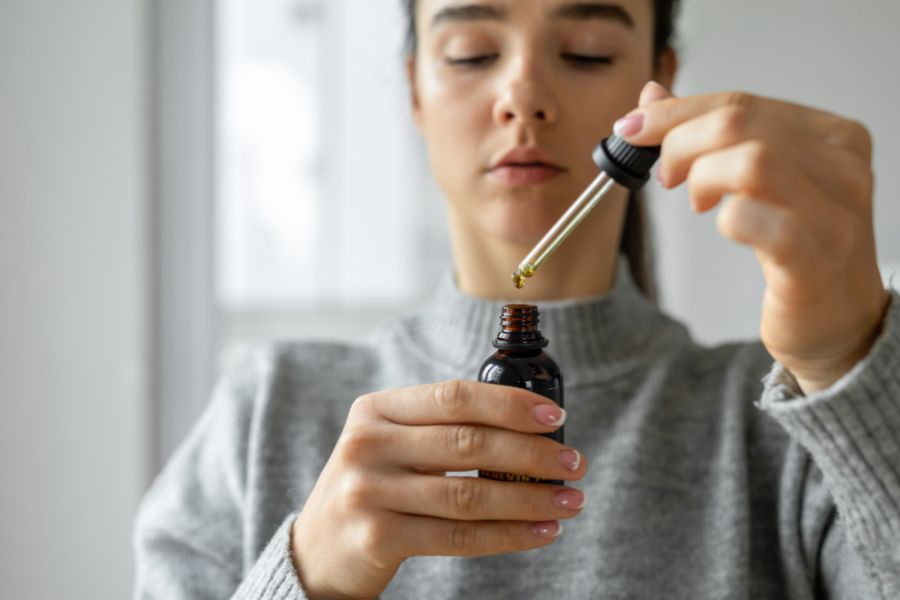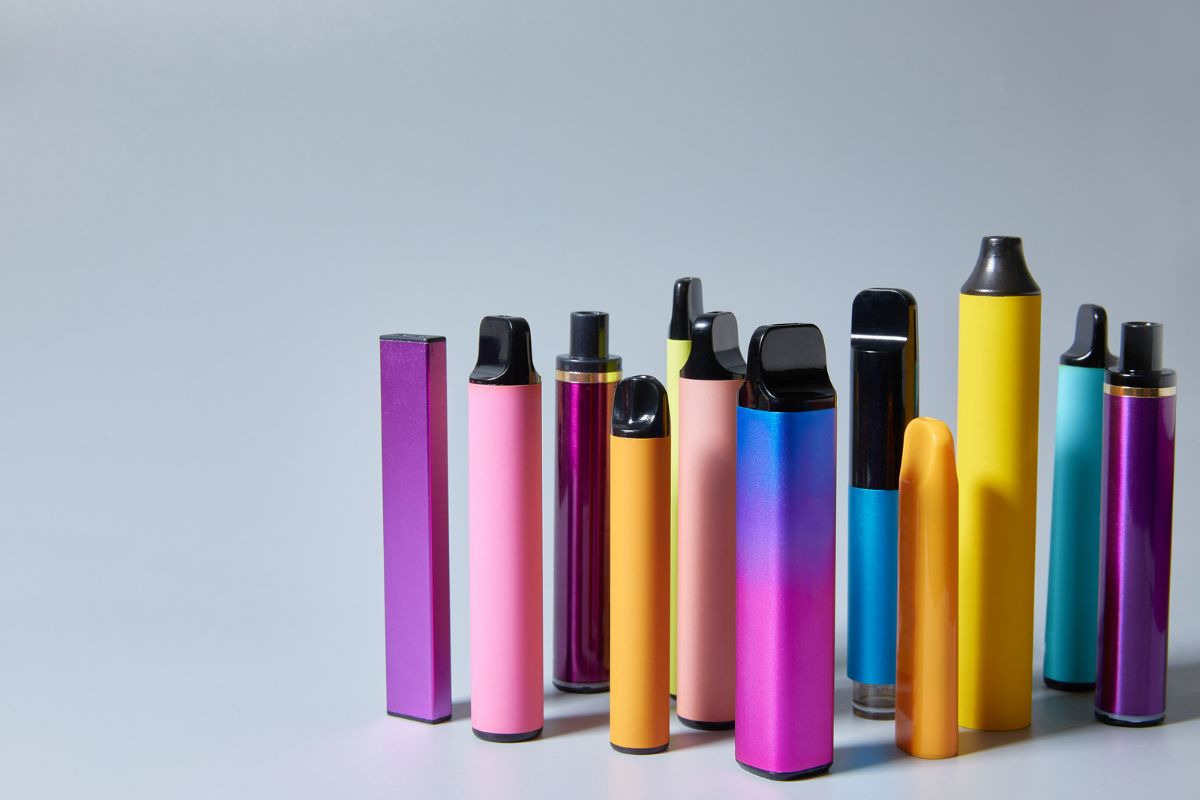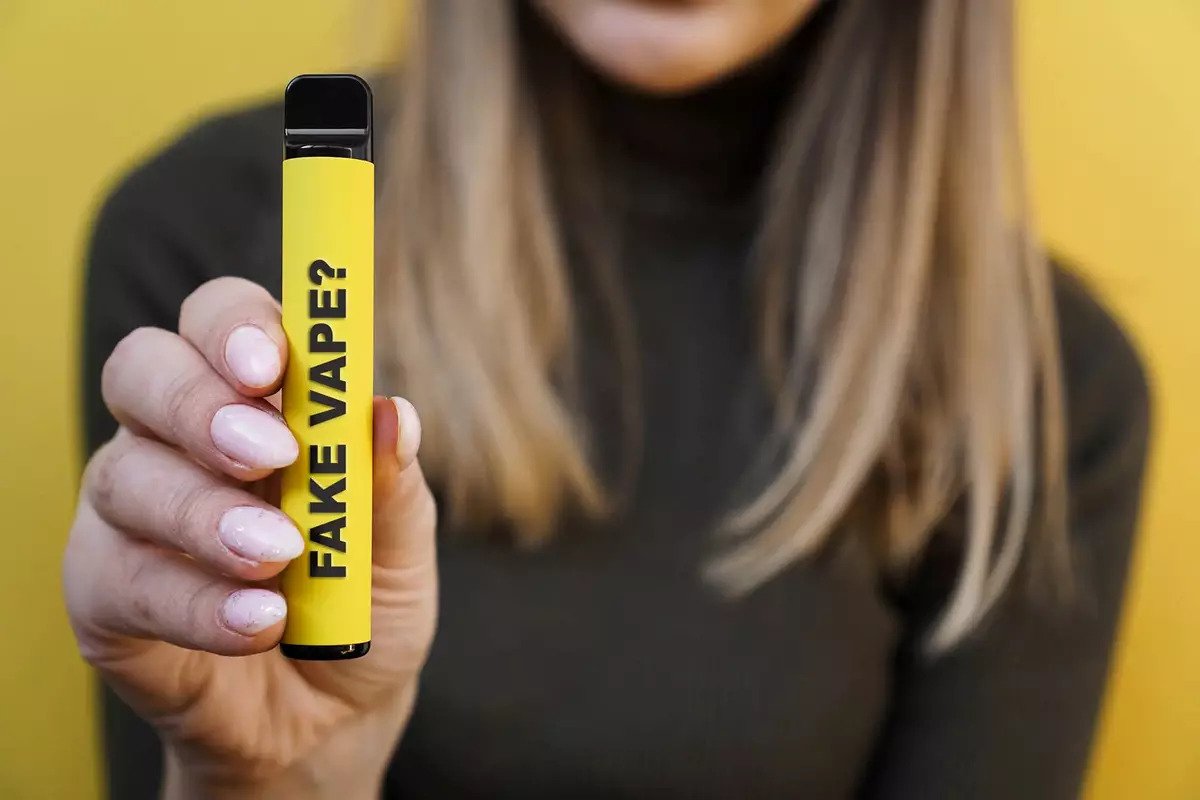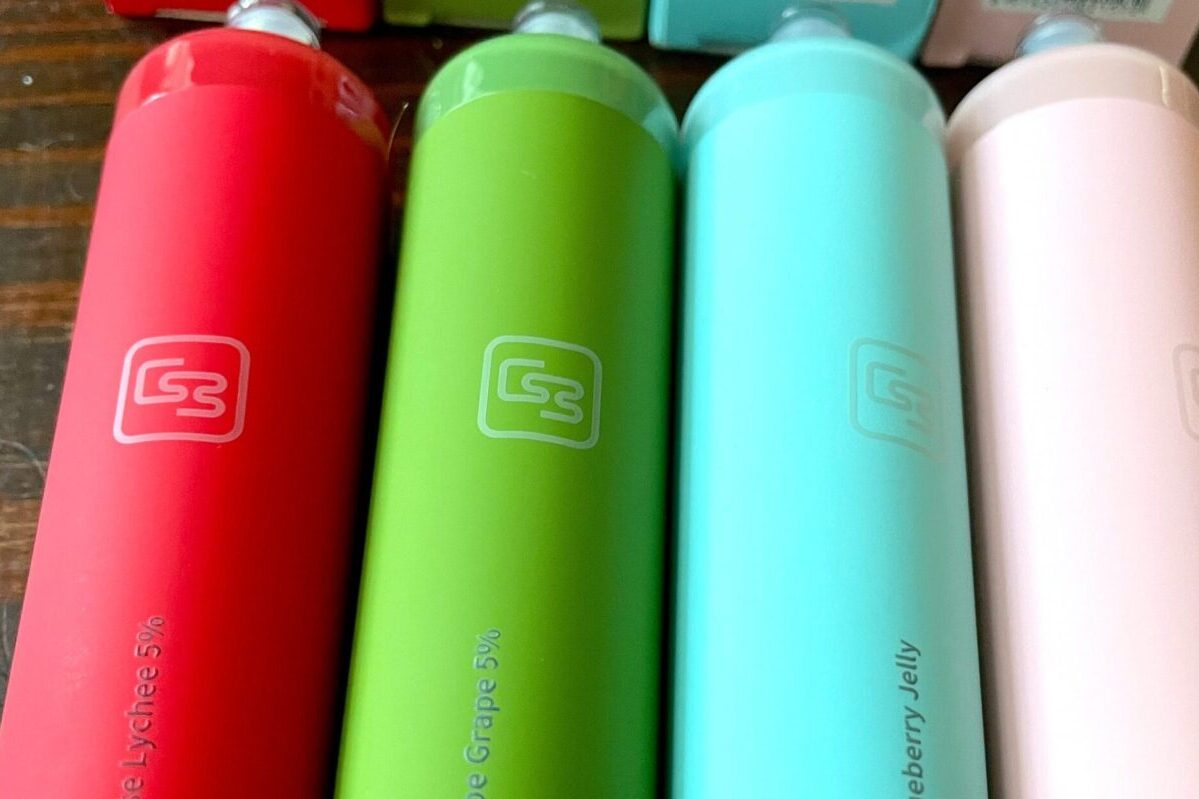Life is full of surprises, and sometimes it throws us off balance. We all experience highs and lows in life, and even the calmest among us can struggle with anxiety. When anxiety creeps in, some people turn to medications for help. Others consider alternative prescription medication like medical cannabis or edibles as potential solutions for anxiety-related issues. This leads to a common question: CBD vs THC for anxiety, which is better?
Let’s dive into the comparison of CBD and THC for anxiety, weighing their advantages and disadvantages.
We’ll also explore the key differences between these two cannabinoids. You’ll discover how they impact mental health conditions and our ability to cope with stress and anxiety. But before that, let’s understand what commonly triggers anxiety disorders.
What Triggers Anxiety Disorders?
Anxiety disorders, characterized by excessive fear or worry, are triggered by a complex interplay of factors. Here’s a more detailed breakdown:
- Genetic Factors: There’s evidence to suggest a hereditary component to anxiety disorders. Individuals with a family history of anxiety or other mental health conditions are at a higher risk.
- Brain Chemistry: Neurotransmitters, chemicals in the brain that regulate mood and behavior, also play a key role. Imbalances in serotonin, dopamine, and other neurotransmitters contribute to anxiety disorders.
- Life Events: Traumatic or stressful events, such as the death of a loved one, abuse, divorce, or job loss, triggers anxiety disorders. Chronic stress, particularly in individuals with a predisposition to anxiety, may also be a significant factor.
- Environmental Factors: This includes upbringing and life experiences. For example, children who grow up in environments that are unstable or abusive may develop anxiety disorders later in life.
- Medical Factors: Certain physical health conditions, such as heart disease, diabetes, or hormonal imbalances, increase the risk of developing anxiety. Moreover, side effects of some medications induce symptoms of anxiety.
- Personality Traits: Individuals with certain personality types, like timidity or perfectionism, are prone to anxiety disorders.
How CBD WorkdFor Anxiety
CBD interacts with special receptors in our body, known as CB1 and CB2 receptors. These receptors are like tiny switches that affect our brain and body in various ways.
While scientists are still figuring out exactly how they work together, they believe that CBD changes the signals of a chemical called serotonin in our brains.
Serotonin is like a natural mood booster. It’s the feel-good hormone that keeps anxiety at bay and makes us feel less depressed. A study in 2019 found that when people started using CBD, about 79.2% felt less anxious within just one month.
Another study backs up this idea. It suggests that CBD might be a helpful treatment for different types of anxiety when used for a short period. This includes generalized anxiety disorder, panic disorder, generalized social anxiety disorder, obsessive-compulsive disorder, and even post-traumatic stress disorder.
So, there’s growing evidence that CBD could be a valuable tool in both chronic pain and managing anxiety. It’s a promising discovery for those looking for natural ways to find a little more calm in their lives.
How THC Works For Anxiety
THC, a component of cannabis, has two different effects on anxiety, depending on how much you take. At lower doses, THC might help reduce anxiety. It does this by interacting with the brain in a way that can make you feel more relaxed and less stressed.
if you take too much THC, it can make your anxiety worse. That’s because THC is known for its psychoactive properties, which lead to the sensation of being ‘high.’
In a study from 2020, researchers looked at how both CBD and THC affect anxiety. What they found is that THC, especially in higher amounts, tends to make people more anxious. It causes side effects like feeling paranoid, confused, or having a faster heart rate.
So, if you’re thinking about using THC to help with anxiety, it’s important to be cautious. Stick to smaller doses, and if possible, consider using products that contain full-spectrum CBD instead. We’ll explore this option in more detail later on.
Cannabidiol vs. THC Method of Action
Cannabidiol, commonly known as CBD, is a compound found in the cannabis plant, including its various subspecies like Cannabis indica and Cannabis ruderalis.
Unlike another well-known compound in cannabis called THC, CBD doesn’t make you feel high or altered in any significant way. In fact, in some situations, it even counteracts the mind-altering effects of THC when both are present together.
Scientists are still studying exactly how CBD works to provide its therapeutic benefits. We know that THC primarily interacts with and activates two receptors in the brain known as CB1 and CB2. This leads to its therapeutic and primary psychoactive component effects.
In contrast, CBD seems to work differently. It appears to partially block or oppose the activation of both CB1 and CB2 receptors. This means that when CBD is in the picture, THC and other compounds have a harder time binding to these receptors, reducing their impact.
CBD has also been observed to affect another receptor called 5HT1A, which is related to serotonin. This action has been linked to reducing anxiety and panic-like responses, as seen in research studies.
Can THC or CBD Make Anxiety Worse?
When it comes to THC, the active ingredient in marijuana, its impact on anxiety can vary depending on the dose. In simpler terms, low doses of THC can help alleviate anxiety symptoms, while higher doses can make anxiety worse.
Imagine this: a study had people do a challenging stress task. When they took a small dose of THC (7.5 mg), they felt less stressed about the task. Afterward, they said it wasn’t as tough or scary when they talked about it.
But things went opposite when the dose was bumped up to 12.5 mg. People got more anxious and scared before, during, and after the task.
Now, here’s the exciting part: CBD, another compound from cannabis, doesn’t seem to make anxiety worse than THC can treat anxiety. Still, more research might be needed to be absolutely sure. However, before you grab a vape or infuse it into your diet, ensure you consult your doctor.

CBD vs THC For Anxiety: Which Is Better?
Everyone responds uniquely to products, and this applies to both THC and CBD, which can help reduce anxiety symptoms. However, because THC can make you feel ‘high,’ many people prefer CBD.
But there’s a fantastic option that offers the best of both worlds: full-spectrum CBD. These products contain all the plant’s compounds, including a small amount of THC.
Because THC isn’t the main ingredient, you have more control over how much you consume, making it easier to ease anxiety symptoms without causing discomfort.
THC in Combination with CBD for Anxiety
Higher doses of THC can worsen anxiety in patients, but CBD doesn’t seem to make anxiety worse at any dose. However, CBD’s anxiety relief has a limit – taking more of it past a certain point doesn’t seem to make it work better.
CBD and THC seem to work best when used together. They affect different receptors in the brain that are important for handling stress. CBD might also help reduce THC’s impact by limiting its attachment to the CB1 receptor.
Right now, more research is happening to figure out the best doses and treatment plans. It’s exciting to see how these alternative treatments might become a safe option for mental health disorders in the future.
Different Spectrums and Their Effect on Anxiety
Full-Spectrum
A full-spectrum CBD product is like a treasure trove of natural goodness from hemp-derived CBD products. It has a bit of THC, but not nearly enough to make you feel high. In fact, it has no more than 0.3% THC, which is way too little to give you any buzz.
Most full-spectrum products contain around 0.1% THC or thereabouts. But don’t fret; this tiny amount won’t make you feel funny. Instead, it’s loaded with all the good stuff from the plant, like cannabinoids, flavonoids, and terpenes.
Broad-spectrum CBD Oil
A broad-spectrum CBD product is like a full-spectrum one because it has all the natural ingredients like terpenes, flavonoids, and some THC. These ingredients can be really helpful for calming anxiety.
But here’s the twist: in broad-spectrum CBD oil for anxiety, there’s only a tiny, tiny bit of THC. Don’t worry, though – it won’t make you feel high at all.
Most people believe that top-notch CBD oils are either broad-spectrum or full-spectrum because they contain all those extra-good things from the plant.
CBD Isolate
CBD isolate is pure and simple. It’s all about CBD, with no extras like terpenes, flavonoids, or THC. Imagine it as a pristine, snow-white powder in its natural state.
Regardless of the spectrum you opt for, be careful of the choice of products to avoid buying a fake. Do your due diligence stick to legally approved distributors.
Conclusion
When it comes to the medicinal cannabis sativa plant and its components, THC and CBD, it’s important to be very cautious when considering THC as a treatment for anxiety. For some individuals, using THC can lead to substance abuse problems, FDA approved, and it often only provides temporary relief from anxiety symptoms. This can be pretty confusing, especially if you’re dealing with generalized anxiety-related disorders.
On the other hand, CBD is still being studied as a potential remedy for anxiety. While animal studies have shown promising results, controlled substances act, there haven’t been enough human trials to definitively confirm CBD’s effectiveness in treating anxiety.




